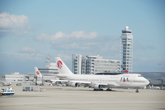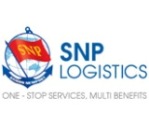 |
The International Air Transport Association (IATA) urged airlines to use fuel supplies in Japan efficiently as stocks at some airports had fallen to 10 days' worth of supply, reported Dow Jones Newswires.
IATA said it was too early to assess the long-term impact of the Japanese earthquake and tsunami on the global air transport industry, but it was coordinating actions among airlines to maximise fuel supplies in Japan and briefing carriers and officials on rationing if shortages arise,
Some airports stock between two and three weeks' supply of fuel, but the exact quantity would depend on how close the airport is to a refinery.
IATA suggested planes carry sufficient fuel for both legs of journeys, avoiding the need to refuel in Japan, but that can only be used for short-haul and domestic routes and isn't a long-term solution.
Some airlines, such as British Airways, Lufthansa and SAS already have made adjustments to their schedules to make stops to refuel elsewhere.
IATA has experience of fuel shortages following a fire at the Buncefield oil-storage facility in England in 2005 that led to a major loss of aviation fuel.
Fuel still could be imported and military bases and trucks could be used to help transfer fuel to airports.
Japan refines a high proportion of its own aviation fuel and produces about three to four percent of global supplies.
Japan's aviation market is worth US$62.5 billion a year, representing 6.5 percent of world-wide scheduled traffic and 10 percent of the industry's revenue. It faces severe disruption following an earthquake and tsunami on March 11 that may have claimed more than 10,000 lives and damaged a nuclear facility at Fukushima, escalating the disaster.
"A major slowdown in Japan is expected in the short term," said Giovanni Bisignani, IATA's director general. "And the fortunes of the industry will likely not improve until the effect of a reconstruction rebound is felt in the second half of the year."
IATA said Japan's domestic market, which carries 83 million passengers per year and represents about $19 billion in revenue, was the most vulnerable.
The most exposed market to Japanese operations is China, where Japan accounts for 23 percent of its international revenue.
Taiwan and South Korea are equally exposed with 20 percent of their revenues related to Japanese operations, followed by Thailand with 15 percent revenue exposure. France is the most exposed European market at seven percent, followed by Germany with six percent and the UK with three percent.
Cargonews Asia
|













